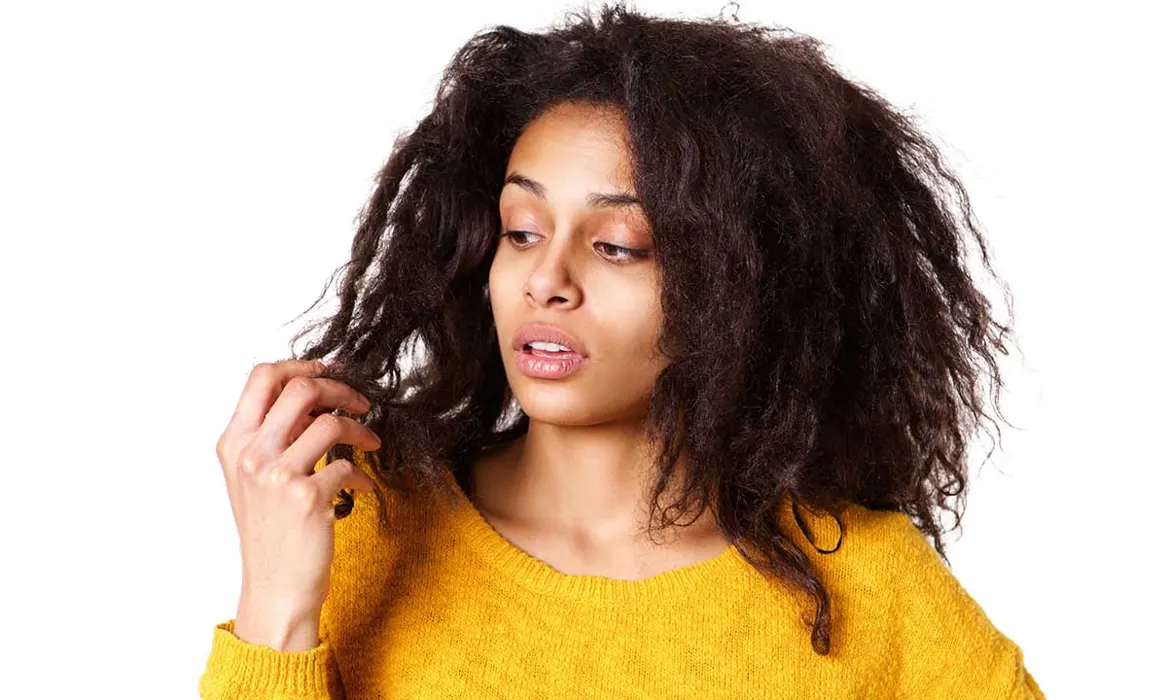What do oven cleaners, paint thinners and chemical relaxers have in common? They all contain lye, or sodium hydroxide, a versatile yet highly corrosive substance used in the manufacturing of many different products.
Because hair relaxers contain lye, they can damage your hair and scalp if used incorrectly, and even cause hair loss.
How Do Chemical Relaxers Work?
Hair relaxers straighten hair by penetrating the cuticle and the cortex layers of the hair shaft to loosen the natural curl pattern. This process leaves the hair weak, brittle and prone to breakage. It can even burn your skin, cause permanent damage to the scalp and lead to hair loss.
Hair relaxers have been in use since the early 1900s and are one of the most popular styling products among African American women. Even with harmful and prevalent side effects, chemical relaxers are an effective and efficient way to straighten hair, offering quick results that last for weeks.
If relaxed hair is your style of choice, there are a few things you can do to decrease the chance of hair loss and minimize damage to your hair and scalp.
Protect Your Scalp
According to the United States Food and Drug Administration (FDA), the side effects of hair relaxers are exacerbated by improper use. The best approach is to have an experienced professional apply the treatment. However, if you decide to do it yourself, you should never use relaxers on unhealthy hair or a damaged scalp. You also don’t want to leave a hair relaxer on for more than the recommended amount of time, and never leave a relaxer in your hair long enough to feel any tingling or burning. Do everything possible to keep the chemicals from touching your skin. Coating your scalp with a base of petroleum jelly before applying the relaxer can help protect the scalp from chemical burns.
Don’t Double Process Your Hair
Avoid coloring and relaxing your hair at the same time. The combination of lie in relaxers and peroxide in hair dye can cause severe damage to both your hair and scalp. If your hair is already brittle, breaking or bleached, avoid relaxing your hair altogether. Wait a few months to give your roots a chance to grow out before you relax again.
Handle Your Hair with Care
Once your hair is relaxed, it requires some TLC. Handle it delicately and give your strands extra hydration. Regularly moisturize your hair by deep conditioning it weekly. Limit the use of heat styling tools like flat irons and blow dryers. Applying heat can further weaken chemically treated hair and cause breakage. You’ll also want to stay away from tight braids and ponytails that pull at the hairline. In fact, continuously wearing tight styles that tug on your hairline can cause a type of hair loss called traction alopecia.
“No Lye” Relaxers Can Still Cause Damage
Many consumers falsely believe that relaxers without lye are safe. But, in place of lye, these relaxers rely on other powerful chemicals, namely calcium hydroxide and guanidine carbonate, to effectively break the chemical bonds of the hair shaft. Therefore, “no lye” relaxers should be used with as much care as other chemical relaxers. It’s recommended that all relaxers be applied by a trained professional.
Book a FREE consultation to discuss the best chemical relaxers available today!




